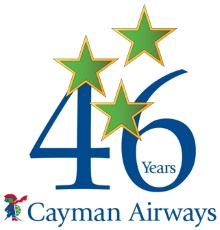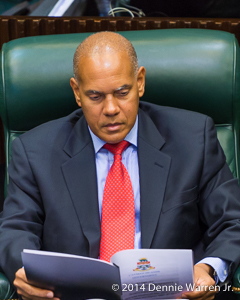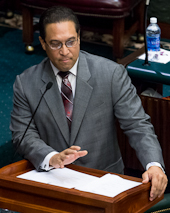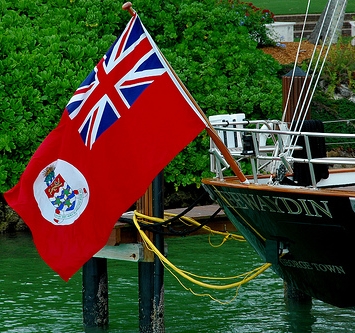Search Results for 'turtle farm'

CAL celebrates 46 years with discount airfares
 (CNS): Cayman Airways Limited (CAL) is offering heavy discounts on airfares as the company celebrates 46 years of service as the National Flag Carrier. Airfares are now on sale for travel from 10 September through 5 November this year but the flights must be booked by this Saturday, 9 August. On domestic and regional routes, sale fares start from just CI$38 each way for travel between Grand Cayman and the Sister Islands. Kingston and Montego Bay airfares are discounted down to just CI$68 each way, and Havana and La Ceiba airfares start from only CI$70 each way. Airfares are also on sale for travel this autumn between Grand Cayman and Miami, Tampa and New York (JFK).
(CNS): Cayman Airways Limited (CAL) is offering heavy discounts on airfares as the company celebrates 46 years of service as the National Flag Carrier. Airfares are now on sale for travel from 10 September through 5 November this year but the flights must be booked by this Saturday, 9 August. On domestic and regional routes, sale fares start from just CI$38 each way for travel between Grand Cayman and the Sister Islands. Kingston and Montego Bay airfares are discounted down to just CI$68 each way, and Havana and La Ceiba airfares start from only CI$70 each way. Airfares are also on sale for travel this autumn between Grand Cayman and Miami, Tampa and New York (JFK).
Government and airport taxes and fees are additional for all quoted sale fares, and some conditions apply. Quoted fares are based on roundtrip purchase.
For details and to book any of the domestic, regional, or USA sale fares, customers can call Cayman Airways reservations on 949-2311, book online at caymanairways.com, or contact a local travel agent.
As part of the 46th anniversary celebrations, Cayman Airways will also host its annual Customer Appreciation Day at its ticket offices on all three islands on Thursday 7 August, which is the airline’s official anniversary date. Walk-in customers who purchase any of the sale fares on that day will receive giveaways and be entered to win the grand prize of a roundtrip ticket to any Cayman Airways destination. Second prize is 4,600 Sir Turtle Rewards miles, and third prize is 460 Sir Turtle Rewards miles.
Passengers travelling on 7 August will also be treated to raffles aboard all flights operating that day, with some lucky passengers winning a variety of prizes compliments of Cayman Turtle Farm and various industry partners.
Cayman Airways President and CEO, Fabian Whorms, said the board, management, and staff at the airline are extremely grateful to have such a loyal customer base. “These sale fares and activities are our way of showing our appreciation for customers’ commitment to Cayman Airways,” he said. “As we mark our 46th year in service, we look forward to serving our community for many more years to come.”

DoT announces winning filmmakers
 (CNS): From what were described as 80 outstanding entries for the Cayman Islands Department of Tourism (DOT) short film competition three young students were declared the winners recently at a final screening at the local cinema. Lia Piper, Mckayla Cupid and Raidez Perez came top in their respective division to win the Cayman…Through My Eyes titles. The People’s Choice Award went to Ayana Davis Eden for her “Caymankind Inspires Me” short film with a total of 990 votes. Winners of each division received a 1-week scholarship to the New York Film Academy (NYFA) Summer Camp
(CNS): From what were described as 80 outstanding entries for the Cayman Islands Department of Tourism (DOT) short film competition three young students were declared the winners recently at a final screening at the local cinema. Lia Piper, Mckayla Cupid and Raidez Perez came top in their respective division to win the Cayman…Through My Eyes titles. The People’s Choice Award went to Ayana Davis Eden for her “Caymankind Inspires Me” short film with a total of 990 votes. Winners of each division received a 1-week scholarship to the New York Film Academy (NYFA) Summer Camp
Competitors submitted Beginning in films between 1 to 3 minutes long for the Junior category for ages 11 – 13, Middle 14 – 16 years and Senior (Ages 17 – 19). The competition was developed to help bring awareness to tourism, history, culture and a sense of pride about the Cayman Islands in our youth though film. It targets the Cayman Islands primary, secondary level and first year college students.
Acting Director of Tourism, Rosa Harris, praised the budding filmmakers: “It is always refreshing to be reminded that the Caymankind spirit resides in all of us here, regardless of our age. These young stars have showed an awareness of our culture, environment and what it really means to be a part of the Cayman Islands and I believe that competitions like this help to inspire our youth to develop into ambassadors of Cayman,” she added.
Sponsors for the event included the Cayman Islands Department of Commerce and Investment, Atlantis Submarines and the Cayman Turtle Farm. TheJudges for the competition were, Ryan Rajkumarsingh (DCI), Tony Mark (Cathy Church Photo Centre) and Tremayne Ebanks (Apex Video Solutions).
Films are available to view here

FRC needs support for parenting skills programme
 (CNS): The Family Resource Centre is appealing to the community to donate gift certificates to be used as a prizes for families taking part in the free courses it offers to improve parenting. The government agency delivers an eight week long course between six to eight times a year, helping around 60 families annually that need skills to improve their family dynamic. At the end of the programmes the families involved celebrate their graduation and the FRC uses gift certificates to reward the families with a fun day out.
(CNS): The Family Resource Centre is appealing to the community to donate gift certificates to be used as a prizes for families taking part in the free courses it offers to improve parenting. The government agency delivers an eight week long course between six to eight times a year, helping around 60 families annually that need skills to improve their family dynamic. At the end of the programmes the families involved celebrate their graduation and the FRC uses gift certificates to reward the families with a fun day out.
The courses are all free to the recipients and are designed to strengthen individuals and build stronger families. The Family Skills Programme (FSP), which is a closed group of 5-8 persons referred by relevant partner agencies, is one of many programmes the agency runs annually to help with social problems.
Atlantis Submarine, the Turtle Farm, Kingpin Bowling, Red Sail Sport, Ritz Carlton, Pizza Hut, Dolphin Cove, Cayman Kayak, Imaginarium, the Regal Cinema and the National Trust are all current sponsors for the programme but the Resource Centre said it is seeking more partners in the community that can help with providing the rewards.

Anti-corruption law limited
 (CNS): The recent successful prosecution of the former deputy chair of the National Housing and Development Trust has demonstrated that the anti-corruption law is considerably more limited that legislators had originally envisioned. Although Edlin Myles was found guilty on seven counts of deception in relation to fraudulently selling insurance policies to applicants of the Trust, the 62-year-old former board director was not prosecuted under the law that was designed to cover people in government positions. Although Myles was able to access his victims because of his position on the board the crown could not define him as a public official under the current law.
(CNS): The recent successful prosecution of the former deputy chair of the National Housing and Development Trust has demonstrated that the anti-corruption law is considerably more limited that legislators had originally envisioned. Although Edlin Myles was found guilty on seven counts of deception in relation to fraudulently selling insurance policies to applicants of the Trust, the 62-year-old former board director was not prosecuted under the law that was designed to cover people in government positions. Although Myles was able to access his victims because of his position on the board the crown could not define him as a public official under the current law.
Although Myles was originally arrested under sections 13 and 17 of the Anti-Corruption Law 2010 for breach of trust and abuse of public as well as the common law deception offences, the charges under the anti-corruption law were all dropped. During his direction to the jury last week, Justice Alex Henderson pointed out to the jury that while they make have felt Myles misused his position on the board to fraudulently sell the policies, the judge impressed upon them that they could not find him guilty because of that as no conflict or abuse of office charges had been laid against Myles.
The now demonstrable limitations of the legislation have raised considerable concerns and some government officials, who do not wish to be name,d have has stated that the legislation must be revised as it is not fit for purpose.
The legislation is based on a number of anti-corruption laws used in other jurisdictions but was never localized to fit the Cayman context and in particular the use of private sector and volunteer directors on government company and statutory authority boards
When the law was implemented in 2010, the attorney general released a statement warning all board directors and others working with government that they would be subject to the new legislation. Samuel Bulgin had pointed specifically to people serving on government and statutory boards and said it would have a significant impact on them from potential conflicts of interest to abuse of office.
However, it appears that the government’s top lawyer was wrong.
The Myles case has highlighted the limitations of the law. It appears that board directors who are not directly employed by government and paid only expenses or a stipend are not covered by the legislation, leaving all of government’s companies and authorities, from Cayman Airways and the Turtle Farm to the Airport and the Health Services Authority, vulnerable to corrupt officials. While the civil servants sitting on boards and the employees of the government companies and authorities appear to be covered, anyone from the private sector who is appointed to a board need have no concern about the law applying to them until it is revised.
CNS has contacted the Cabinet for comment on the situation, which appears to boil down to problems with the definition of a public official. However, as yet there has been no comment on its position regarding the law, which was originally touted as a success for good governance but which in practice is proving to be unfit for purpose.
See related stories on CNS:
Top lawyer warns boards about anti-corruption law

Public mutuals ‘best solution’
(CNS): A local business owner is suggesting that government re-think its strategy to sell off government assets and look at mutualization as an alternative – a solution that he said is “taking off like wildfire in the UK”. Steve McIntosh, owner of local recruiting agency CMLOR, explained that the initiative, also known as public mutuals, involves setting up a government entity or department as a private company, where the existing staff become shareholders, and to contract that company to deliver its service. McIntosh is suggesting that in Cayman, 40% of the government entity would be owned by the staff and the other 60% would be auctioned off in 10% blocks to individuals, maintaining that there are many local investors who are willing to help the country but would apply real market forces and expect accountability.
Under the mutualization scheme, if a government department is currently costing $1 million to run, as a company it would be paid roughly the same amount as part of its contract but it would be up to the staff, as shareholders, and the investors to make the department run more efficiently, effectively privatizing government without laying anyone off.
The company would be regulated by its contract with government and equity would be distributed so that 20%, at no cost, was given to the management team, according to seniority and length of service; 20%, at no cost, to the remaining staff; 60% to private investors, who would be invited to bid for tranches of up to 10%.
McIntosh suggests that the initial contract would be for a period of five years (non-performance notwithstanding) after which the contract would be renegotiated. The fee paid to the company would be 95% of the prior year budget and would reduce by 5% each subsequent year of the contract till renewal at year five. The new company would be required to rehire all of the existing staff and retain them for at least five years (dismissal for cause notwithstanding) on no less than 95% of their current salary.
He said that some departments and entities with distinct roles, such as DER, DCI, Radio Cayman, the Cayman Turtle Farm, Computer Services, Hazard Management and Lands & Survey, could be turned into public mutuals very easily, while other services, functions and teams within larger government ministries, such as the Education Ministry's scholarship secretariat, could potentially be gradually spun off in a similar way.
McIntosh said there are a couple of departments that he would invest in as a philanthropist, such as the National Workforce Development Agency (NWDA) because he believes, as a professional recruiter, that he can usefully contribute to the running of the department. His investment would get him a seat on the board, and while he would not have control of the company, he would have a say in the way it was run. “In this way, you would harness a great deal of management capability and innovation for free.
“Right now, if a government department is totally dysfunctional, basically the recourse is for the ministry to come in and to micromanage the hell out of it,” he said and pointed out that the failing department would have compounding problems, such staff issues, infrastructure problems, budget problems, and micromanaging rarely improves things.
“Government generally tries to solve problems by taking more control and what’s needed is for it to have less control,” he explained. Some services, such as education, cannot be just about profit, but, McIntosh said, “I also believe that with a total absence of market forces you’re going to have sub-optimal outcomes. Most governments are trying to bring in the effects of market forces without the downside, like monopolies.”
One of the hardest things to do when it comes to management is to fire people who are not performing, McIntosh said, acknowledging that if it wasn’t his own money he was dealing with, he would be tempted to find excuses not to do it. This is one area where market forces needs to be implemented in government services. Each public mutual company would have independent boards with the power to hire and fire, he explained, which would be one of the main areas that distinguished them from the concept of statutory authorities and government companies, where government retains control through the appointment of the boards.
The key to the scheme is the contract and government would have to get good at writing them, he said. If a company that is a former government department failed to deliver, it is far easier to cancel the contract, he noted, and it could also be written in the contract that government retained the ability to de-mutualize the department and take it back into core government if the public mutual is not working. “At the very least they would get a year of people clearing it up,” he said.
“Everyone agrees that government is somewhat inefficient in what it does but the solution to that is not to make arbitrary cuts,” McIntosh told CNS Business. “People like idea of smaller government in the abstract but when it impacts services, they’re likely to feel differently about it. It’s the paradox of government. The solution is to find a more effective ways to deliver services and I think the leaders of the civil service understand that.”
McIntosh said that he came up with this idea a few years ago as a solution for the Cayman Islands, calling it ‘management buy out’, and put it to government officials at the time, but they wanted to know if it had worked anywhere else. “At the time it was just a hair brained idea that some recruiter had come up with. But as I was following the SAGE Commission in Bermuda, they referred to ‘public service mutuals’ and I realised that it was exactly what I had proposed two or three years ago. And when I researched it, I found out that there is a department within the UK government that is set up to create these companies.”
McIntosh said there is a “tonne of willingness to tap into” within the private sector. Many within the business community are ready to assist in sorting out problems within government, he said, and the reason that no one has yet stepped up to help in the rationalization process is that they have not yet been asked. “There’s nothing to step up to yet,” he pointed out.
If the rationisation process goes ahead and civil servants are laid offt, he said there are jobs in the private sector to absorb them. “The employment market is not as difficult to understand as a lot of people think it is,” McIntosh said. “In a country where there are twice as many jobs as members of the workforce, which as far as I know is a unique situation, the one and only reason anyone is out of work is that of salary expectation.” Stressing that this expectation is not always unreasonable, he said that if civil servants were made redundant and the salary expectation is in line with the market, there is no reason why they will not get hired.
However, he does not think the government’s plans to sell off various public entities is going to result in a loss of many jobs because it’s just not going to work, being, for one thing, politically very difficult.
“Mutualization is by far the best solution – it's a no brainer. It doesn’t involve a single layoff and converts departments from public to private entities and the employees of the department become owners in their own department,” McIntosh added, noting that the system would fit well with the existing Public Service Management Law and budget documents, which set out the deliverables. “We’re already halfway there,” he said.

Archer exceeds his targets
 (CNS): The finance minister’s aim for his first budget was on target, the Legislative Assembly heard Monday, when Marco Archer said government expects to exceed the more than $100million forecast surplus for 2013/14 by more than $7million at 30 June. He also revealed that he would be looking for an even bigger surplus next year. Archer has forecast an operating surplus for 2014/15 of a whopping $128million for the entire public sector. With the minister having achieved this year’s goal on paper, he said, CIG was also on track to meet the three year plan and be in compliance with the fiscal framework for responsibility and all the requirements of the public management and finance law by 2016. (Photo Dennie Warren JR)
(CNS): The finance minister’s aim for his first budget was on target, the Legislative Assembly heard Monday, when Marco Archer said government expects to exceed the more than $100million forecast surplus for 2013/14 by more than $7million at 30 June. He also revealed that he would be looking for an even bigger surplus next year. Archer has forecast an operating surplus for 2014/15 of a whopping $128million for the entire public sector. With the minister having achieved this year’s goal on paper, he said, CIG was also on track to meet the three year plan and be in compliance with the fiscal framework for responsibility and all the requirements of the public management and finance law by 2016. (Photo Dennie Warren JR)
The finance minister said prudent financial management was still at the centre of his budget strategy for the 2014/15 financial year. He pointed to strict controls on spending as well as enhanced debt collection and proactive debt management as the key issues.
According to the budget documents, Archer’s unaudited figures appear to be adding up so far and the surplus is being used to pay down debt, cover capital expenditures and boost government’s cash reserves as require by law.
Archer revealed that the operating surplus at the end of next month is now expected to be $108.1million rather than the forecast $100.2million. The surplus was due to more revenue than anticipated and a little less public spending than expected. Government was hoping to earn just over $845million from core revenues and from its statutory authorities and government companies but it is expected to end up taking in over $850million. Meanwhile, overall government and SAGC spending was squeezed down from an expected $549.4million to just over $547million. Government’s debt stands at just over $548.8million.
The minister explained that the revised revenue forecast was down to a combination of positive economic growth and new revenue measures approved during the 2012/13 financial year. The most significant areas of better than expected performance was on import duty which is now forecast to be some $5.1 million above original budget projections and mutual fund administrator licences which are forecast to be $4.2 million above original budget projections.
Meanwhile, the revised forecast for operating expenses was down to a series of cost reduction measures including a $3.4million savings in personnel costs because of restrained recruitment and natural attrition. There was also a $0.8 million decrease in financing expenses, due to lower interest expenses resulting from renegotiated interest rates on a portion of the debt portfolio and because government stayed out of its overdraft facility, the minister said.
However, he warned the savings were partially offset by a bigger than expected bill for overseas medical care for those who have either exceeded their health insurance cover or who don’t have insurance, which is forecast to be $ $1.3 million more.
Turning to the forth coming year Archer is aiming higher for 2014/15 and expects core government and the public authorities to bring in a combined revenue of a record breaking $872.6million almost $20million more than this year. However, as much as government is trying to cut its operating costs Archer is still predicting $744.6million will be needed to pay for operating cost and financing expenses which is more than this year’s costs of $743.9million because of the increase in staff and as a result of the statutory authorities.
Government will also be plugging the Turtle Farm’s operating losses and debt to the tune of $9.5million as well as $4.8million to Cayman Airways to cover its losses. The National Housing development trust will also receive $2.8million for its debts and another $1.5million will go to the development banks debts.
Archer announced a new sinking fund which government plans to pay in to over the next four years and it will be starting this coming financial year with a contribution of $4.3million. He said government will also bring debt down by a further $25million and not only will there be no new borrowing the CIG doesn’t require an overdraft facility for the 2014/15 financial year. He noted however, just weeks away from the start of the hurricane season, that the UK had agreed to that facility should Cayman face any natural disasters this year.
Archer also revealed that the delay in the budget was not down to government waiting on the UK as he said his final spending plan was not sent to the FCO until last Monday and the minister gave the go ahead just two days later.
Describing his budget as once again fiscally prudent he said it was not just about complying with the Framework for Fiscal Responsibility but for future of the country. He said the budget provided a healthy surplus, to fund capital expenditures, the cash reserves and reduce debt.
See the full budget in detail in documents posted below.

Premier says sacred cows will be auctioned
 (CNS): Premier Alden McLaughlin hopes to count on support from the opposition benches when his government starts to put what he described as public sector "sacred cows" on the auction block. Speaking in the Legislative Assembly Wednesday, he told his parliamentary colleagues that if he kept the support of the government benches he was committed to passing the public authority law, despite the push-back expected from the semi-autonomous government companies and statutory authorities. The law will pave the way for more accountability and see some authorities amalgamated, some taken back into government and others sold off. McLaughlin said, however, that Cayman Airways wouldn’t be one of them.
(CNS): Premier Alden McLaughlin hopes to count on support from the opposition benches when his government starts to put what he described as public sector "sacred cows" on the auction block. Speaking in the Legislative Assembly Wednesday, he told his parliamentary colleagues that if he kept the support of the government benches he was committed to passing the public authority law, despite the push-back expected from the semi-autonomous government companies and statutory authorities. The law will pave the way for more accountability and see some authorities amalgamated, some taken back into government and others sold off. McLaughlin said, however, that Cayman Airways wouldn’t be one of them.
During an unexpected debate in connection with a report from the local maritime authority that the member from North Side said should be rejected as a result of that authority’s failure to explain five years of losses, the premier revealed that the draft public authority law was well down the road to reaching a bill and coming before Cabinet, and soon after would be published for consideration and public consultation before debate in the parliament.
“No government has had the courage before to see this through because of the push-back from the public authorities,” he said, adding that the PPM administration of 2005-09 had tried but never got passed the discussion stage because of that push-back.
This time, however, he said that they would be pressing ahead with the law and the review of public authorities. With that came the issue of privatization and divestment but ,McLaughlin said, "No one wants to put the bell on the cat,” as he referred to the public authority “sacred cows” that could be sold.
The premier did not identify which authorities, government companies or public services that his government had in mind but he was quick to state that the national flag carrier would not be on the auction block at this stage.
With Miller calling for accountability regarding the losses at MACI and the debate that his motion had caused regarding the mismanagement of some public authorities and the significant loses at some, such as the turtle farm, requiring massive government subsidies, McLaughlin called on him and the other opposition bench members to back government and not “change course when the sacred cows are put up for auction.”

MACI losses stir up LA
 (CNS): With losses of more than $1.2 million over the last five years, the Cayman Islands Maritime Authority (MACI) stirred up proceedings Wednesday, when the Legislative Assembly opened on Cayman Brac. Ezzard Miller called on his fellow members of the LA to reject its 2013 financial report, pointing out that year after year government was accepting increasing losses at yet another statutory authority, which at worst should be breaking even when it was originally created to make a profit. Pointing to the complete absence of any explanation for the growing losses by MACI, despite revenue increases, the North Side member said the report should be sent back and the directors held to account.
(CNS): With losses of more than $1.2 million over the last five years, the Cayman Islands Maritime Authority (MACI) stirred up proceedings Wednesday, when the Legislative Assembly opened on Cayman Brac. Ezzard Miller called on his fellow members of the LA to reject its 2013 financial report, pointing out that year after year government was accepting increasing losses at yet another statutory authority, which at worst should be breaking even when it was originally created to make a profit. Pointing to the complete absence of any explanation for the growing losses by MACI, despite revenue increases, the North Side member said the report should be sent back and the directors held to account.
The report was tabled by the financial services minister, Wayne Panton, as proceedings began and although he mentioned the more than $377,000 loss which government will suck up, there was no detailed explanation given for it as he thanked the board for their “professional and steadfast service". However, when Miller got to his feet and called for the House to reject the report, that "professional service" was called into question.
He pointed out that although there were record level earnings on the 1,966 ships now registered with the authority of more than $8.4 million, expenses were more than $9.2 million. 60% went to wages for the 50 employees, with $476,000 alone on three managers. Over $600,000 was spent on travel and entertainment and Miller asked why no one was asking what was happening. Given the constant loses, Miller queried the sense in retaining the register as an autonomous authority.
“Members should be concerned and alarmed,” he said, pointing to the continuing habit of reports being tabled and accepted by the LA with no questions asked of boards or the well paid managers.
He said he had tried to look at the possible reasons, comparing the shipping registry to the General Registry, which manages hundreds of thousands of commercial entities and public documents with less staff, pays its management team less than half those at the shipping registry and brings in more than $200,000 for government every year.
Panton was quick to point out the losses had nothing to do with the current administration. He said the comparison to the General Registry was inappropriate as the regulation involved in the shipping registry’s work was technical and costly.
He said losses were down to a fall in the number of services or outputs that MACI performs for government, which Miller had revered to as a subsidy, amounting to almost $6 million over the last five years. He also pointed to pay-back on a lease when MACI moved to the new government building. However, that was later revealed to be incorrect as the authority had saved some five months rent for the relevant financial year, which was in the report as a benefit.
Panton assured members that the losses were being addressed and would fall next year. Also MACI, like all other government companies and statutory authorities, would soon be under review and called to account with the proposed public authority law. The minister underscored the importance of the registry to Cayman and its significance to its maritime history. He also noted that it generated significant work for the offshore sector, so while it might make a loss as an authority in contributed indirectly to the economy overall, as he dismissed Miller’s suggestion of rejecting the report.
The member for East End, Arden McLean, who had seconded Miller’s motion, said all it asked for was for the board to recognize the problem and offer some reasons and solutions and asked how three managers could be earning almost half a million dollars at a government authority.
“We need to keep a close eye on these authorities,” he said, adding that they treated government like a “money tree” but the poor performance was continuously endorsed. He added that the intent of the motion was to find out what had gone wrong at MACI to ensure it won’t continue.
Offering the turtle farm as another shocking example, he called on government once again to just give the facility away as even paying the loan back would be cheaper than the ongoing subsidy.
The planning minister, Kurt Tibbetts, emphasised the importance of the forthcoming public authority bill that will make government companies and statutory authorities accountable but he said that while he could not support rejecting the report, the issue had now been aired and he trusted the minister to handle the issue.
The opposition leader also joined in the debate, which stirred up feelings in the LA about the lack of accountability that has surrounded public authorities. McKeeva Bush took aim at Panton for being quick to say it wasn’t his government’s fault, but Bush said the authority had lost money under both administrations and the problem went beyond politics. He agreed it was important to find out why. Defending the turtle farm, he emphasised its cultural importance and again lamented the lack of support for a cruise ship pier in West Bay, which he said would have changed the fortunes of the attraction.
Meanwhile, the government’s veteran backbencher, Anthony Eden, who is increasingly ploughing his own political furrow, acknowledged that it was probably too late to send the report back but he said members could not put their heads in the sand and allow losses to continue, as he called for the public authority law.
The premier assured him and other members it had been drafted and was a long way down the road towards coming before Cabinet. (See related story: Premier-says-sacred-cows-will-be-auctioned).
He said the Maritime Authority could generate more income if it was able to attract commercial vessels, where the money was. He agreed with the leader of the opposition that the losses at MACI were fundamental and had nothing to do with any particular government but rejecting the report wouldn’t help.
Winding up the debate, Miller said he had never pointed the finger at any government but wanted the directors to be accountable. He raised concerns that the current board was more concerned with generating work for supporting financial services companies than getting MACI to break even or make a profit.
Disappointed by government’s dismissal of his proposal, he said it had missed an opportunity to send a clear message to tell the board to stop the bleeding. Miller warned that continuing to accept reports such as the one on the table was endorsing poor management.

CAL to greet Games baton with water salute
 (CNS): The Commonwealth Games baton will be arriving in Cayman Friday from Jamaica to a specially organised water cannon tribute from Cayman Airways. The baton is making its way around the Commonwealth countries of the world competing in the games which will be held in Glasgow in July. Part of the Queen’s Baton Relay celebrations the baton contains the Queen’s message to the athletes and while in Cayman it will be carried around the island in a multi-sport relay. The relay is the curtain-raiser to the Games and Cayman is sending its largest team to date to the 2014 games with athletes competing in Athletics, Boxing, Cycling, Gymnastics, Shooting, Squash and Swimming.
(CNS): The Commonwealth Games baton will be arriving in Cayman Friday from Jamaica to a specially organised water cannon tribute from Cayman Airways. The baton is making its way around the Commonwealth countries of the world competing in the games which will be held in Glasgow in July. Part of the Queen’s Baton Relay celebrations the baton contains the Queen’s message to the athletes and while in Cayman it will be carried around the island in a multi-sport relay. The relay is the curtain-raiser to the Games and Cayman is sending its largest team to date to the 2014 games with athletes competing in Athletics, Boxing, Cycling, Gymnastics, Shooting, Squash and Swimming.
Aside from the watery greeting Secretary General of the Cayman Islands Olympic Committee (CIOC) Carson Ebanks, Commonwealth Games Gold Medallist Cydonie Mothersille, and Glasgow 2014 Chef de Mission for the Cayman Team Jennifer Powell will be ready to receive the baton before it starts is all island relay.
The baton will make its way to each district in Grand Cayman, with the first leg of the relay beginning with Her Excellency the Governor at her residence. She will pass the Baton on Seven Mile Beach to CIOC President Donald McLean to begin the relay through the district of West Bay. It will make its way across the North Sound, with a short stop at Stingray City before traveling through North Side, followed by East End and Bodden Town and finally making its way into the capital of George Town.
Throughout its journey the baton will travel by Jet Ski, foot, cycle, sail boat, and horse, just to name a few. It will stop at numerous historical locations such as the Turtle Farm, the Wreck of the Ten Sails and the National Museum and be carried by an impressive list of prominent Caymanians, young and old.
The CIOC is extremely pleased to announce that elite athletes Cydonie Mothersille, Ronald Forbes and Brett Fraser will all be on island to participate in the relay among numerous Caymanian athletes of all abilities.
As the first Gold Medalist for the Cayman Islands, competing in the 200m at the last edition of the Commonwealth Games held in Delhi 2010, Mothersille will carry the Baton for the final leg of the relay, arriving at Heroes Square for a short cultural reception open to the public between 4:00pm and 6:00pm at Celebration Park next to the Court House where everyone has the opportunity to see the baton and meet Caymans top athletes. There will be live music provided by Swanky Kitchen Band and a short quadrille performance by George Town Primary.
On Monday, April 14th, the baton will make its way to the sister islands of Cayman Brac and Little Cayman before its departure the follow morning to the Turks and Caicos islands.
The Commonwealth Games is an international, multi-sport event involving 71 teams of athletes from the Commonwealth of Nations. The event was first held in 1930 and takes place every four years. Glasgow 2014 will be the 20th Commonwealth Games and will be held from July 23rd to August 3rd. It will feature 17 sports in 11 days of competition with 261 medal events on show. The first Queen’s Baton Relay was staged for the 1958 Commonwealth Games in Cardiff and has been made a tradition ever since. For the first time in history, the relay will be covered by the BBC across its entire journey.
For more information on the Queen’s Baton Relay and how you can be a part of it, the Glasgow 2014 Commonwealth Games or the Cayman Islands National Team, please contact the CIOC at:
Email: cioc@candw.ky Website: www.caymanolympic.org.ky
Facebook: http://www.facebook.com/CaymanIslandsOlympicCommittee.
Visit the official page for the Queen’s Baton Relay to follow its journey:
https://www.glasgow2014.com/queens-baton-relay

Joey admits drugs charges
 (CNS): Following his admissions regarding seventeen charges relating to theft, forgery and deception on Friday, the former Electricity Regulatory Authority (ERA) director, Joey Ebanks, has now also admitted to taking cocaine. In another about face following earlier denials, Ebanks pleaded guilty in Summary Court on Tuesday to drug consumption charges. When he was originally arrested regarding the theft allegations relating to his time as the managing director of the ERA, when he pilfered over $100,000 worth of iPads, iPhones and cash, he was also accused of cocaine use and possession of related paraphernalia. Having come clean in Grand Court, Ebanks has also admitted the drug offences.
(CNS): Following his admissions regarding seventeen charges relating to theft, forgery and deception on Friday, the former Electricity Regulatory Authority (ERA) director, Joey Ebanks, has now also admitted to taking cocaine. In another about face following earlier denials, Ebanks pleaded guilty in Summary Court on Tuesday to drug consumption charges. When he was originally arrested regarding the theft allegations relating to his time as the managing director of the ERA, when he pilfered over $100,000 worth of iPads, iPhones and cash, he was also accused of cocaine use and possession of related paraphernalia. Having come clean in Grand Court, Ebanks has also admitted the drug offences.
According to reports on Cayman27, after submitting his new pleas, Ebanks, who remains on bail, told reporters that he had found God, which was why he changed his pleas. Ebanks had, however, always claimed strong Christian faith, which he emphasised during the recent election campaign when he ran as an independent candidate for North Side, especially on his paid-to-air evening talk show, which ran for several weeks ahead of the national vote.
Ebanks had also spent a considerable amount of time on his Facebook page, which has since disappeared, claiming his innocence and accusing the authorities and others of conspiring against him because, he claimed, he had evidence of corruption in high places. Ebanks had originally implied that the positive drug test against him had been fixed and insisted he would demonstrate that he was an innocent victim caught up in a high level conspiracy.
Ebanks is expected to be sentenced in March in connection with all of the charges he has now admitted.
No stranger to controversy, Ebanks had already faced the finger of suspicion regarding financial issues at the Cayman Turtle Farm when he was the MD there before the 2009 General Elections. However, the authorities failed to take action over the irregularities highlighted by the Office of the Auditor General.
Ebanks ran for political office in North Side in 2009 with the PPM but lost to Ezzard Miller. However, after the elections he switched political allegiance and began courting the UDP and was later given another public sector post with the top job at the ERA.
He is accused of embezzling money by claiming false travel expenses, forging signatures on cheques and purchasing almost $70,000 worth of iPads and iPhones with public money, which he has admitted were passed on to others.